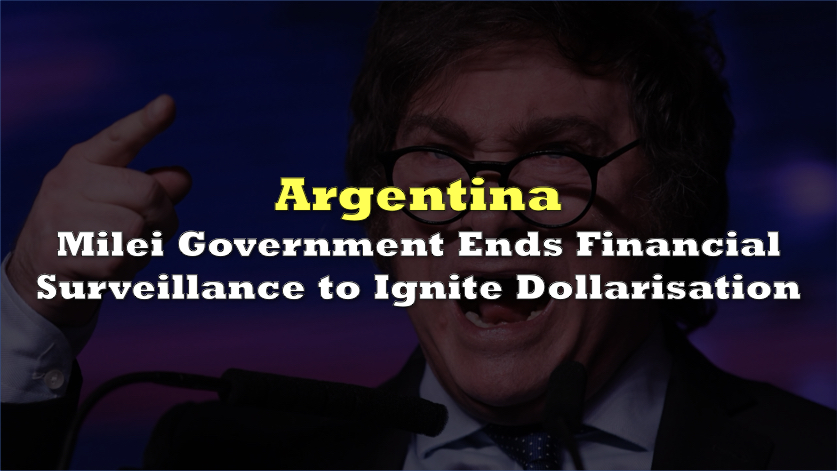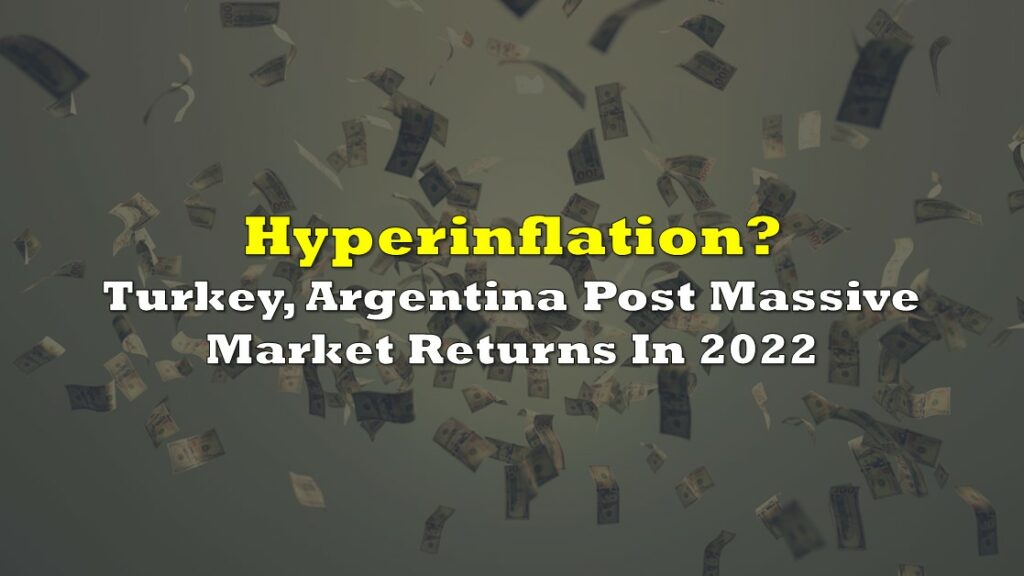In a move attempting to revive Argentina’s struggling economy, newly-elected president Javier Milei unveiled a comprehensive shock-therapy program, featuring 54% currency devaluation and substantial spending cuts. The announcement, including an adjusted exchange rate of 800 Argentine Pesos per US dollar, comes as the nation grapples with chronic fiscal deficits and a soaring inflation rate.
BREAKING: Argentina's President Javier Milei announces currency devaluation by 54% and spending cuts in an effort to revive the economy.
— The Kobeissi Letter (@KobeissiLetter) December 12, 2023
The new exchange rate has been adjusted to 800 Argentine Pesos per US dollar.
Spending cuts include suspending public works, cutting… pic.twitter.com/jj8cdO2Fs3
Economy Minister Luis Caputo, delivering the details in a televised address, emphasized the necessity of breaking Argentina’s “addiction” to fiscal deficits. The measures include suspending public works, cutting subsidies on transport and energy sectors, halving the number of ministries, and reducing transfers to provinces. Simultaneously, certain social welfare programs will be boosted to address the economic challenges faced by the citizens.
The International Monetary Fund (IMF) praised the government’s “bold initial actions,” expressing confidence that these measures will stabilize the economy and pave the way for sustainable, private-sector-led growth. IMF spokesperson Julie Kozack stated, “Their decisive implementation will help stabilize the economy and set the basis for more sustainable and private-sector led growth.”
This move follows Argentina’s central bank’s record rate hike of 133% just two months ago, signaling the urgency of addressing the economic crisis. Argentina has grappled with an average inflation rate of 40% per year over the last decade, prompting the need for decisive action.
Milei, in a somber inauguration speech, warned citizens of enduring months of economic hardship as the government works to pull the country from the crisis inherited from his predecessor. With inflation already surpassing 140% annually, the president anticipates further price jumps between 20% and 40% in the coming months.
The decision to devalue the peso was anticipated, with markets signaling a potential drop of about 27% in the first week of the new government. Investment banks had suggested an even more substantial weakening of up to 44%. The government’s move to close Argentina’s export registry on Monday, coupled with limited transactions in the official currency market, indicated a significant policy shift.
While critics argue that the devaluation was inevitable, the government’s approach aims to address the root problem rather than merely the consequences. Caputo highlighted this shift, stating, “What we’ve come to do is the opposite of what they always did, and that’s solve the root problem.”
I welcome the decisive measures announced by President @JMilei and his economic team today to address 🇦🇷 Argentina’s significant economic challenges—an important step toward restoring stability and rebuilding the country’s economic potential.https://t.co/1zZRES9anE
— Kristalina Georgieva (@KGeorgieva) December 12, 2023
Investors, initially spooked by Milei’s emergence on the political scene, have cautiously rallied behind his administration, particularly applauding the decision to appoint Wall Street veterans to key cabinet positions. The president-elect has distanced himself from more radical proposals, including dollarizing the economy and shuttering the central bank.
The appointment of Santiago Bausili, a seasoned Deutsche Bank and JPMorgan Chase & Co veteran, to run Argentina’s central bank signals a commitment to financial stability. Bausili, a longtime colleague of Caputo, brings a wealth of experience, having played a crucial role in negotiating a $16.5 billion deal with holdout bondholders during the administration of Mauricio Macri.
Information for this briefing was found via Bloomberg and the sources mentioned. The author has no securities or affiliations related to this organization. Not a recommendation to buy or sell. Always do additional research and consult a professional before purchasing a security. The author holds no licenses.









